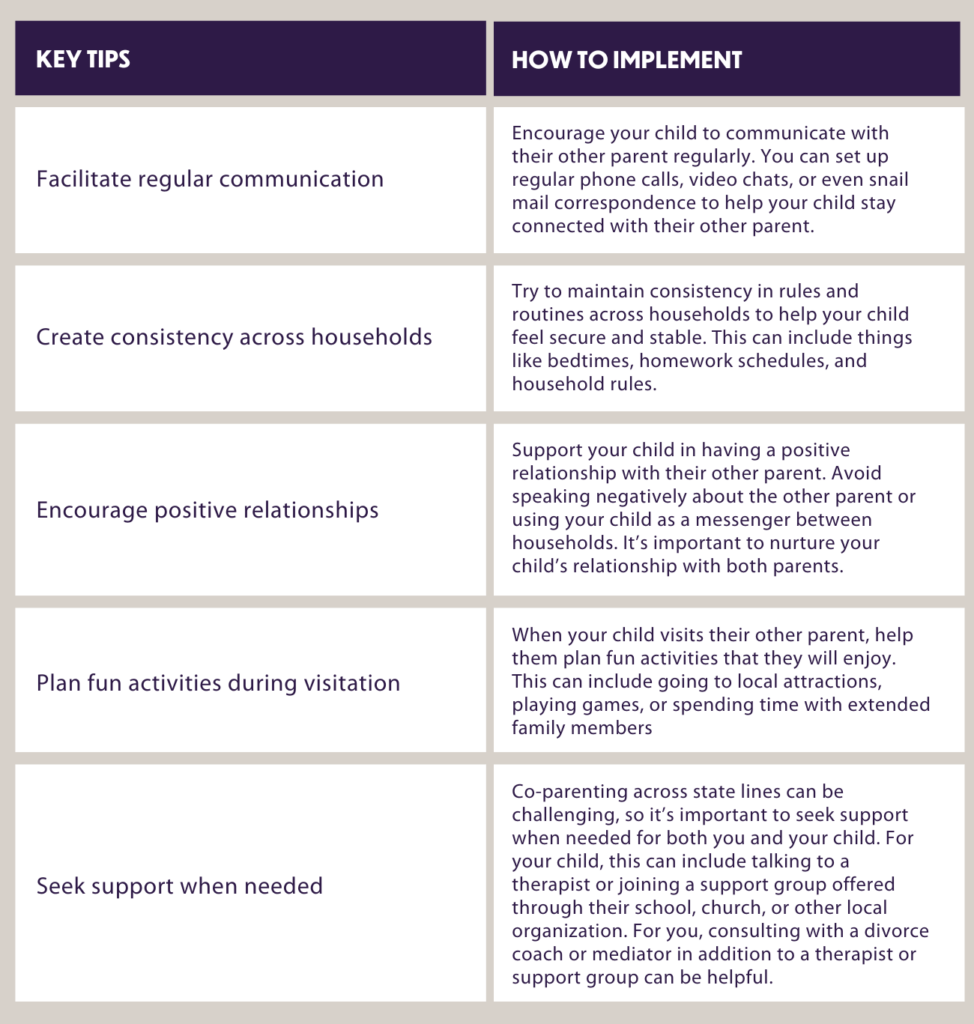Divorce is never easy and having children with an ex-spouse who lives in a different state can be even more challenging. Co-parenting across states requires careful planning, communication, and a willingness to work together for the benefit of your children. There are also laws regarding custody disputes to be aware of if you find yourself in this situation.
Can You Move to a Different State When You Have a Custody Agreement in Place?
If you have a custody agreement in place, you may wonder if you can move to a different state. The answer is that it depends on the terms of your agreement and the laws of your state.
In general, if you want to move to a different state with your child, you must get permission from the other parent or obtain a court order. If you move without permission or a court order, you might violate your custody agreement and face legal consequences.
Before moving to a different state, consult with an experienced family law attorney who can help you understand your rights and obligations. Your attorney can help you determine whether your custody agreement allows for a move. They also can help you navigate the legal process of obtaining permission or a court order.
Facts About Co-Parenting Across States
Moving to a different state when you have a custody agreement in place is complicated, and it’s important to know the facts before approaching this subject with your co-parent. When you and your ex-spouse live in different states, there are a few important things to keep in mind:
- The Uniform Child Custody Jurisdiction and Enforcement Act (UCCJEA) governs custody disputes between parents who live in different states. The UCCJEA is a law that establishes which state has jurisdiction over a child custody case. The law ensures that only one state has jurisdiction over a custody case at any given time. The state with jurisdiction is where the child has lived for the past six months or where they have significant connections.
- Parenting time arrangements can be more difficult when parents live in different states. Depending on the distance between the parents, arranging for the child to travel between the two homes may be challenging. Also, parents who live in different states may have different work schedules or other commitments that make scheduling parenting time more challenging.
- Communication is key. Co-parenting requires communication, and it is even more important when parents live in different states. Regular communication helps ensure that both parents are informed about the child’s activities, school events, and other essential information. It is also pertinent to establish a method of communication that works for both parents, whether it is email, phone calls, or video conferencing.
- It is important to have a detailed parenting plan. Having a detailed parenting plan in place outlining how parenting time will be divided, who will be responsible for transportation, and how communication will be handled is crucial. This can help prevent misunderstandings and conflicts.
- Child support may be more complicated. Each state has its own child support guidelines, and the amount of child support can vary depending on where the child lives. In addition, parents who live in different states may have different income levels or different costs of living, which can affect the amount of child support.
5 Key Tips to Help Your Child if Their Parents Live in Different States
There are several ways you and your ex-spouse can support your child to ensure they thrive despite the distance between their parents. Remember, the most important thing you both can do is prioritize your child’s needs and work collaboratively to support their growth and development.

Co-parenting across states can be complicated, but with the right tools and support, it is possible to ensure that your child continues to grow and succeed despite the distance. Regular communication, consistency between households, and nurturing positive relationships can go a long way in helping your child maintain strong connections with both parents and feel safe and secure in their homes.
